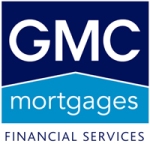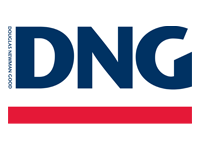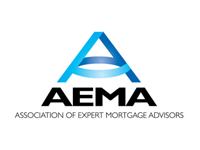Where do I start?
The first thing you need to do is establish an approximate amount that you can borrow to buy your home. This amount is based on many factors including your income from employment.
Once you know how much you can borrow, put this together with your own personal resources (e.g. stamp duty cost, savings, inheritance) and you have a fair idea of how much you have at your disposal to buy your home. Note you should also budget for costs associated with the purchase process (e.g. solicitor’s fees, moving costs) and post-purchase costs (e.g., furnishing and decorating your home). Note that you need to have sufficient resources to ensure that the “loan to value” of your mortgage does not exceed a certain percentage (e.g. 92%). Work out all the costs that you need to buy your property (including the purchase price of the property itself). Then subtract the amount that you should be able to borrow (use the mortgage calculator above to do this). The amount you are left with is the amount that you need to finance from your own resources.
How can we help you?
We have relationships with most Irish financial institutions, and are well placed to help you on your road to owning your first home. Contact us on 1890 462 462 to speak to a mortgage advisor.
Mortgage Process Explained (step by step guide)
Buying your first home is a big deal, but the process is quite straightforward. The first thing you should do is find out how much you can borrow by calling us at 1890 462 462. Based on your salary, deposit, and monthly loan commitments we will be able to give you an idea of how much you would be able to borrow with us.
Next, find a property that you are interested in buying. Once you’ve got an approval in principle, you’ll know the maximum price you can afford to pay for your new home.
Now you can make an offer. Contact the seller’s estate agent, find out if anyone else is interested in it and decide how much you would like to offer for the property. If your offer’s accepted, for private treaty sales it will be ‘subject to contract’. This means that you and the seller have agreed in principle to go ahead but neither of you are legally bound. You may at this stage be asked to put down a deposit, which you should confirm is fully refundable in case you decide you do not want to proceed. At this stage, you should ideally have contacted your solicitor and asked for a quote for dealing with your purchase.
You will then need to make a full mortgage application for the property concerned. This will contain much of the same information that we already looked for, but will require you to get together supporting documentation (e.g. pay slips, bank statements) to back up what you have stated. The financial institution will also typically send out a valuer to check that the property is worth the amount you are paying for it. However, this valuer is only looking after the lender’s interests and you should consider having a full structural survey of the building done.
Once you’ve applied, and all the relevant checks have been made, which will include confirming that you can afford to repay the loan applied for, your lender should send the loan offer to you. You will also need to apply for other products such as mortgage protection insurance and buildings insurance at this stage.
Your solicitor will check the legal documents relating to the ownership and use of the property. He or she will also make local authority and other searches to check if there are any matters which may affect the value of the property.
Once your solicitor has completed all the checks, you and your seller are ready to exchange contracts. This means signing your identical copies of the contract for sale. Then the solicitors exchange them. This is when you pay your deposit through your solicitor. At this point, both of you and the seller are legally bound to proceed with the transaction. If you pull out after exchanging contracts, the seller can keep your deposit.
Interest rate options
Most financial institutions will offer a variety of interest rate options, but they can be broadly classified into fixed and variable rates. Fixed rates remain the same for the stated period, no matter what happens in the money markets throughout the period. Typically, fixed rates are quoted for periods between 1 and 5 years. After the fixed rate period ends, your mortgage will normally revert to the lender’s standard variable rate, unless you specify another option.
Variable rates are either the lender’s standard variable rate, which normally moves with money market rates and which the lender may increase or decrease from time to time.
Types of Mortgages Available
Generally for first time buyers, lenders will offer you a standard repayment mortgage, where you pay interest on the mortgage and repay capital over a certain term, e.g., 30 years.
What deposit do I need?
The amount of deposit that you need depends on (a) the “loan to value” of the loan (i.e. the amount as a % of the purchase price of the property that the lender will lend) and (b) the amount that is needed to fund upfront costs such as solicitor’s fees, stamp duty and furnishings.
Will my debts affect the amount I can get?
Yes. Lenders will generally determine the amount that you can borrow with reference to your after tax income and also take into account existing loan repayments in arriving at the amount that they are prepared to lend you. Generally, you should seek to be debt-free before you apply for your first mortgage. However, if you have a reasonable amount of personal debt, ideally for specific purposes such as car finance, then this may not pose a problem.
Tax Relief on Mortgages
Tax relief is available on owner-occupied residential mortgages, and this is generally deducted straight from your mortgage repayment so that your net repayment every month is lower than otherwise. Once you drawdown your loan, you should inform the Revenue Commissioners (see www.revenue.ie) and your lender should soon afterwards take account of the tax relief.
The amount of the relief depends on your own individual circumstances, but it can be significant and is set at a higher amount for first time buyers. See www.revenue.ie for further infomation.
Renting Rooms
You can rent out rooms in your owner occupied property up to a certain annual amount without affecting your income tax or capital gains liability. This is called “rent a room relief” and is a great way to subsidise your mortgage repayment without tax consequences. See the Revenue Website for further information.
Extra Costs (e.g. Stamp Duty)
Examples of extra costs that you may need to budget for are as follows: stamp duty, solicitor’s fees, surveyor’s fee, decoration and furnishings, carpets and flooring, alarm installation.
Examples of extra costs that may be payable throughout your ownership of your property include: property service charge, mortgage protection insurance, buildings and home contents insurance, utilities (gas, electricity, telephone).
For more information on all options available to you, contact one of our mortgage advisors today on 1890 462 462


